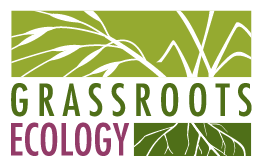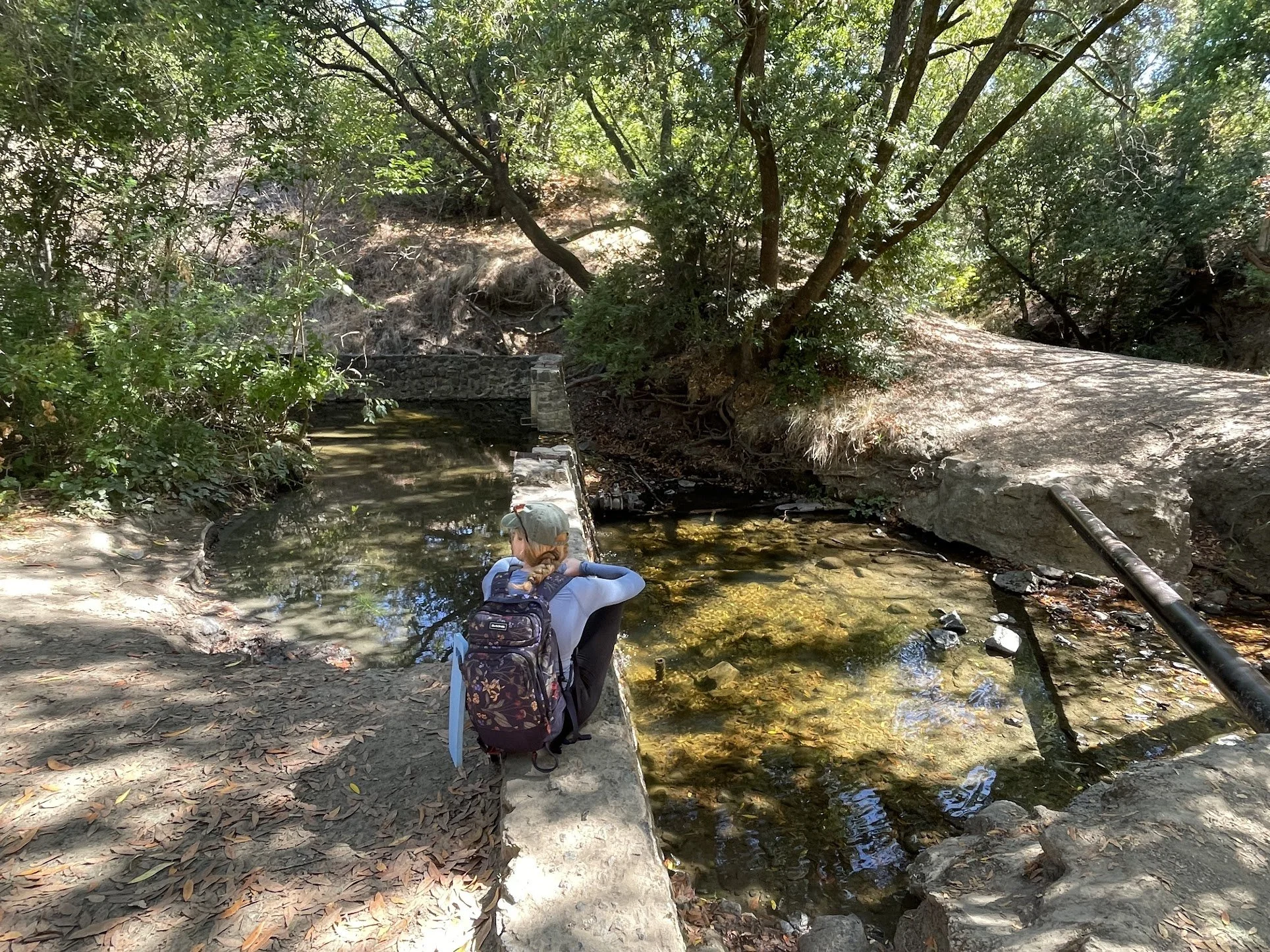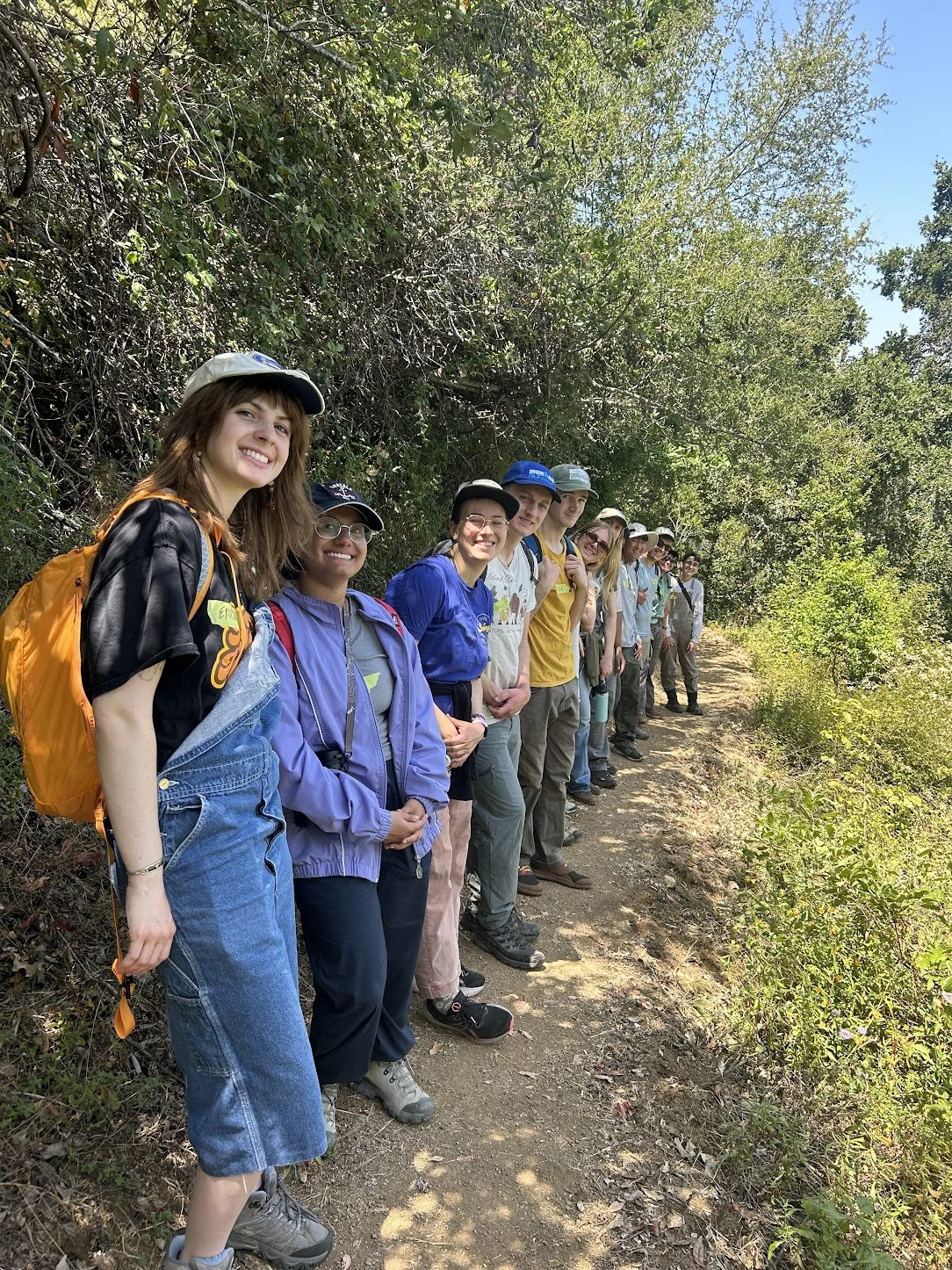An Invitation to Think Like a Naturalist
I wasn’t born with dirt under my fingernails or a field guide in my back pocket. Still, somewhere between my time observing caterpillars transform into butterflies in a preschool lesson and working as a Naturalist Intern with Grassroots Ecology this summer, I became a naturalist. It didn’t happen all at once, but eventually nature became so much more than a backdrop to my life; it became the lens through which I see. Now, whenever I’m outside, I find myself not only entranced with the beauty of nature but also in awe of the natural world itself and its complexity. I share this with you not just to share my own experiences, but in the hope of sparking a flame in your personal interest in being a naturalist.
While I confidently call myself a naturalist today, a year ago, I would have described myself with an informal synonym, simply labeling myself as a nature lover. I mention this to help remove the more formal connotation behind the label naturalist. You can find many definitions of what it means to be a naturalist, but if you first look up the term, a definition from Oxford Languages describes it as “an expert in or student of natural history.” An expert sounds quite exclusive, and even a student, while less exclusive, may deter individuals from considering themselves a naturalist.
From my time so far as a Naturalist Intern, I have found the definition to be much broader. With that being said, the initial definition is not wrong; “experts” and formal students can be naturalists, but a student is so much more than a high school or college-level young adult sitting in a lecture hall taking notes. A student can be anyone who chooses to observe, learn, and appreciate the living world around them. It’s about noticing the small details, like observing the parallel veins of the blades of grass and the tiny bite marks left from the small insect stopping for lunch. Being a naturalist is about caring enough to pause and wonder, even if you don’t know the scientific names or the complex processes at play.
My journey with nature has not always been straightforward. I have always enjoyed being outside, but it took time before I truly began to notice and wonder. That shift started in middle school, when I first learned about global warming and the environmental crises shaping our planet. Suddenly, the natural spaces I had taken for granted—the local creeks, oak woodlands, and wildflower-covered hills—felt more fragile. I began to pay attention not only to the beauty I could see, but also to the invisible stories unfolding around me: the quiet disappearance of pollinators, the bleaching of coral reefs far from home, the steady loss of rainforests I might never walk through. Over time, these lessons turned my curiosity into a habit of looking closer. I began crouching to watch ants navigate the cracks in the sidewalk, pausing to trace the delicate veins of leaves, and following the way lichen slowly spreads across old fence posts, painting them with life. These moments reminded me that nature is not a distant concept or a backdrop to human life; it is alive, intricate, and always speaking if we care enough to listen.
The privilege of caring about nature is something I’ve become increasingly aware of. Not everyone has the time, safety, or access to green spaces to build a relationship with the outdoors. For many, “nature” is a distant concept or the surroundings glimpsed from a car window. I’ve been lucky enough to experience it more intimately, and I recognize that with that privilege comes a responsibility not only to protect natural spaces but to share their wonder with others.
Exploring outside with my fellow Naturalist Interns this past summer.
Part of my intention in sharing my journey as a naturalist is to encourage you to find that wonder for yourself. You don’t need a title, a degree, or a deep knowledge of scientific terminology to start; you only need curiosity and the willingness to learn. You can start with a simple act, like looking up to see the intricate tapestry that trees create with their branches and leaves, creating gaps just big enough for beams of sunlight to shine through. Notice the shape of the leaves, and maybe find one on the ground to take a closer look to see the unique imperfections that grow. These small observations are the first steps toward becoming a naturalist because they shift the world from a blur of background scenery to a living, breathing community of stories.
Part of the beauty of nature is that it’s everywhere if you look for it. While I have been fortunate enough to experience hikes through the Sierra Nevadas and watch countless sunsets along the California coastline, some of my most memorable moments have come from unremarkable places I used to overlook. I’ve found joy making daisy chains in a small muddy patch of grass in between my high school classes, or watching spring’s green hills fade to summer gold along I-280. In those moments, I realized that being a naturalist is less about where you are and more about how you see. The world opens up when you train your attention on the subtle details unfolding all around you.
At the same time, seeing the natural world clearly means seeing its challenges as well. Becoming a naturalist deepens your awareness of environmental change, of the fragility of ecosystems, and of the ways human activity ripples across landscapes and species. That awareness can feel heavy, but I’ve come to believe it’s also a gift. When we care deeply, we’re moved to act. Observation leads to empathy, and empathy can lead to stewardship. Stewardship can take shape in different forms, whether that’s picking up litter, planting native species, or simply sharing your appreciation for nature with someone who hasn’t yet noticed it. Small actions multiply when they’re rooted in genuine care.
Noticing layers of detail at Foothills Nature Preserve—from up-close plants to distant mountain views.
Ultimately, being a naturalist is not a destination but a lifelong practice. I still discover new things every time I step outside, and I hope I never stop. Nature rewards patience and attention, and it asks for nothing in return except that we notice. The act of noticing is itself transformative. Noticing slows you down, grounds you in the present, and reminds you that the world is larger, older, and more intricate than any single human story.
By Mary Henderson, Naturalist Intern




